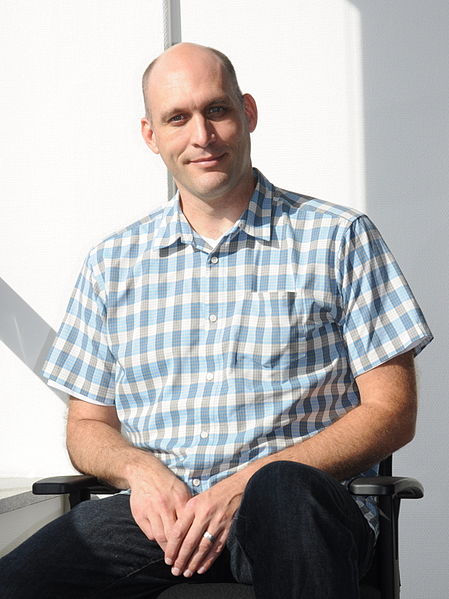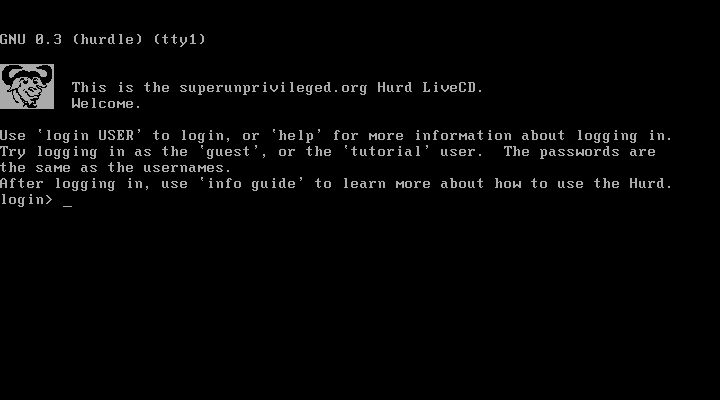09.27.13
Posted in GNU/Linux, Ubuntu at 7:10 am by Dr. Roy Schestowitz

Summary: Analysis of the state of development of Mir and why it’s likely to go mainstream
Canonical has not much of a strong commitment to packages it does not use by default [1]. Ubuntu is moving to Mir, which still upsets a lot of developers outside the Ubuntu community (I am impartial and apathetic myself), and it is still somewhat buggy [2]. Canonical shows some degree of arrogance when it merely assumes that everyone will adapt to Ubuntu [3]. Mir is reluctantly mentioned by some developers [4]. If they don’t embrace it by writing code for it, then Canonical will [5]. In a way, given these recent developments, it seems likely that Mir is here to stay, with or without popular support. Since Mir is not proprietary, it’s a waste of efforts bashing it; it’s probably a case of barking up the wrong tree. Mono was a different thing because it posed patent and API domination (by Microsoft) threats. █
Related/contextual items from the news:
-
Ubuntu developers are presently deciding what to do with support for the ReiserFS file-system, up to and including dropping kernel support for the aging but stable file-system.
-
-
Canonical has confirmed that proprietary driver support will be required when the X fallback will be removed.
It’s been rather unclear what will happen after Ubuntu 14.04 LTS is released, especially because Canonical said that it would remove the X fallback support by that time.
-
Canonical’s Chris Halse James Rogers who has traditionally been part of their X.Org maintenance team and recently been involved with their Mir Display Server is in the Portland (Oregon) area and was thus at this week’s XDC2013. Chris had a brief topic covering Mir but more specifically their nested X Servers and if there’s anything they can share with others — i.e. Wayland.
-
Many graphics card developers consider Mir immature and refused to bring Mir support for their hardware. For example, Intel has dropped the Mir support in order to invest in Wayland, the default system compositor for Tizen, Lubuntu and many others.
Canonical does not worry about Intel decision to drop the support for their compositor, since they are open source, the Ubuntu developers themselves can optimize Mir for the Intel hardware.
Permalink
 Send this to a friend
Send this to a friend
09.26.13
Posted in GNOME, GNU/Linux at 6:38 am by Dr. Roy Schestowitz
 Summary: GNOME, the popular GNU/Linux suite of applications, is back in the groove
Summary: GNOME, the popular GNU/Linux suite of applications, is back in the groove
GNOME, as a desktop environment, suffered some backlash when the third branch came out. It’s similar to KDE when its fourth branch came out. But things appear to be changing for the better in GNOME [1] and a new release is fast approaching [2-6] under the leadership of Karen Sandler [7] who is a strong advocate of software freedom. GNOME Music is being introduced [8] and GNOME applications generally reach out to more environments like MATE and XFCE [9], not just KDE (through QtCurve and other bridges). Other GNOME projects [10,11] show signs of life in this age when we can easily forget GNOME or simply take it for granted, just like KDE.
Several years ago we criticised GNOME for its stance on Mono. After Miguel de Icaza had stepped down things gradually improved and GTK-based Mono-dependent applications mostly died (no longer maintained). Techrights has no opposition to GNOME or the GNOME Foundation. █
Related/contextual items from the news:
-
Anyway, Gnome 3 shell is everyone’s favorite punching bag. For us old-timers, it certainly is unusual in its approach to work flow. But, I tried to adapt to vanilla Gnome Shell. I really did. I don’t want to live in the past.
Nope. Still don’t love the vanilla Gnome 3 experience.
-
Today I installed Fedora 20 (from Nightly Build) that comes with GNOME 3.10 Beta and it (Fedora) feels amazingly stable (except the really buggy installer) for a pre-alpha release.
-
GNOME Shell 3.9.92 was released this morning as the GNOME Shell 3.10 release candidate. With this latest release of the core GNOME 3 user-interface, the Wayland branch has been merged!
-
GNOME 3.10 should be released this month, on September 25, and every Linux users who uses it expects the unexpected, so we thought it would be a very good idea to preview some of its upcoming features.
-
-
Gnome 3.10 is just about a week away and the upcoming features list of version 3.12 is already forming. What are the new features that will empower and extend Gnome’s usability on the “good ten” that’s coming, and what kind of new features are seeing complete fruition on the next version?
-
In Linux Format issue 176, Graham Morrison and Andrew Gregory spoke to Karen Sandler, executive director of the Gnome Foundation. We were so absorbed by what she had to say that we almost missed the free lunch in the canteen. Of the many subjects that the conversation touched upon (we’ll be putting the full interview up on TuxRadar soon), the most time-sensitive is the Gnome Outreach Programme For Women. This does pretty much what it says on the tin: it’s an initiative aimed at getting more women into free software, not just Gnome.
-
-
Long version: In the software application we have the problem where applications have the same name and summary, but are targeted against different desktops. We know when an app targets a specific desktop from the AppStream metadata (which currently uses a heuristic from the .desktop file) so we could filter these out client side. At the moment searching for notes gives you two similarly looking results results provided by two different applications: bijiben (GNOME) and xfce4-notes (XFCE). Also, because of the shared history, a lot of the MATE applications have the same name as the GNOME ones. This makes bad UI.
-
I’m nearing the end of a very busy few weeks, and getting very close to that soft pencils down date! With school starting up again this hasn’t been my most productive week on the GNOME Break Timer front, but I’m pretty happy with what’s been done.
-
A upstream maintainers have contacted me about some kind of validation tool for AppData files. I’ve spent a couple of days creating and then packaging appdata-tools which includes the appdata-validate command. This returns non-zero if there are any syntax or style issues with the AppData file.
Permalink
 Send this to a friend
Send this to a friend
Posted in GNU/Linux, Kernel, Novell, Security at 3:54 am by Dr. Roy Schestowitz

Photo by Sebastian Oliva
Summary: Back doors in code, embedded in blobs, and even shoehorned into encryption is the overlooked security threat, which gets pushed aside in favour of phantom threats which Microsoft ‘sells’ through former Novell staff (i.e. funded by Microsoft)
A MONTH or two ago we mostly ignored exaggerated (sexed-up) reports about something called “Hand of Thief”. When there’s a Windows security threat the press does not call out Windows, but when it relates to GNU/Linux then tabloids like ZDNet scream from the rooftops. This thing called “Hand of Thief” is basically a malicious program which GNU/Linux users need to install themselves in order for it to do malicious things. It is not a virus, it does not spread, and it hardly even uses social engineering to get itself installed. We cited some reports which stress these facts and now comes a belated one too [1]. LynuxWorks is now offering some “Linux rootkit detector” [2] as if rootkits on GNU/Linux are a common issue. In a sense, since the Linux Foundation seems to insist on helping UEFI restricted boot, we are led to the belief that bootkits are a common threat to Linux. As the Linux Foundation’s site put it, as in the words of the employee it acquired from Novell:
Now that The Linux Foundation is a member of the UEFI.org group, I’ve been working on the procedures for how to boot a self-signed Linux kernel on a platform so that you do not have to rely on any external signing authority.
Greg K-H has been working on all sorts of other kernel-level projects that help Microsoft. He did this while being paid by Novell, which was in turn being given money by Microsoft. That’s the power of money. Other former Novell employees also helped promote UEFI restricted boot, as we showed before. Rogue influence by Novell in the Linux Foundation is a subject we have written about for half a decade, showing numerous examples.
The bigger security issue right now might be back doors, which might also exist in Linux, even in encryption form [3] (giving away passwords over the network for example), so hard-to-crack passwords [4] might not be enough. Microsoft’s and Sony’s network compromises sure reveal the massive financial effects of system intrusions, so this subject should not be taken lightly.
UEFI restricted boot is actually a security threat, not a security solution, especially when a signature is provided and managed by some rogue company in the United States — one which has been secretly in bed with the NSA. With UEFI restricted boot, hardware can be bricked remotely. In a way, UEFI restricted boot deserves the name “unsecure boot”. In some devices it can block the user from accessing his/her own computer. Nobody should promote such treacherous computing. █
Related/contextual items from the news:
-
Linux’s biggest vulnerability is the software that users install with full “superuser” privileges. If you just install applications from your distro’s official repository, that’s not a problem. But if you download software from dubious web sites, or if you add a mysterious repository to your package manager, you’re opening yourself up for an infection. Always, always make sure you know what software you are installing, why you are installing it, and where it’s from.
-
LynuxWorks is stepping up the battle with the release of the first hardware-based rootkit detection system powered by the LynxSecure separation kernel. Called the RDS5201, it combats and detects stealthy advanced persistent threats. Built on the LynxSecure 5.2 separation kernel and hypervisor, this small form factor appliance has been designed to offer a unique detection capability that complements traditional security mechanisms as they try to protect against the growing number and complexity of cyber threats.
-
In today’s news of the weird, RSA (a division of EMC) has recommended that developers desist from using the (allegedly) ‘backdoored’ Dual_EC_DRBG random number generator — which happens to be the default in RSA’s BSafe cryptographic toolkit. Youch.
-
-
Dylan Wheeler, who claimed in February to have breached Microsoft’s and Sony’s networks, has not been charged with hacking
Permalink
 Send this to a friend
Send this to a friend
Posted in FSF, GNU/Linux at 2:53 am by Dr. Roy Schestowitz
The GNU operating system does not depend on Linux

Summary: A glance at the GNU project, whose important anniversary is coming at the end of this month
GNU is turning 30 this week. It is nearly as old as yours truly and it is a source of inspiration to many, including the founder of the World Wide Web.
GNU’s anniversary is mostly mentioned by FSF/GNU-related sites [1-5] because the corporate press chooses to ignore it, for reasons that are the subject worth dealing with another day. Stallman is going to give many talks very shortly and events are being organised [6-11]. Be sure to check if an event is being organised near you. As new updates from the GNU project show us (e.g. [12-18]), GNU is very much alive and we oughtn’t confuse that with Linux, which is a smaller part of the GNU/Linux operating system (many people erroneously refer to it just as “Linux”).
“Stallman is going to give many talks very shortly and events are being organised.”We should soon publish an interview regarding the anniversary of GNU and then resume video interviews with Stallman.
Those who ignore or dismiss the importance of the GNU project don’t seem to care about what’s true and important; instead they promote their own agenda, which sometimes gets motivated by corporate interests (the corporate press deserves much of the blame). This is why Linux has been so highly regarded (and groomed) over the past decade or two, essentially overriding and taking a lot of credit away from GNU. To use an analogy, imagine a laptop being referred to as “Wi-Fi”. █
Related/contextual items from the news:
-
The Free Software Foundation (FSF) today announced plans to celebrate the 30th anniversary of the GNU operating system. The celebratory activities will include a 30th anniversary hackathon at MIT in Cambridge, MA, satellite events around the world, and ways for people to celebrate online.
-
30 years. Think of it. 3 decades. A whole generation of programmers and users have benefitted from what started as an annoying printer and became a movement to keep software, developers and users free of stupid, boring, expensive, complicated and irrelevant restrictions on how software can be obtained and used.
-
-
-
-
The FSF has made some reservations at local restaurants for the GNU 30th in Cambridge on Saturday September 28th. If you’re in the area please sign up and come have Indian food with me and other GNOME folks. Sign up soon so I can get excited about seeing you.
-
This speech by Richard Stallman will be nontechnical, admission is free, and the public is encouraged to attend.
-
-
-
-
-
Antisipate, our first GNU Free Call client, is not like most other sip user agents.
-
GNU Aris is a logical proof program.
-
-
-
The GnuCash development team proudly announces GnuCash 2.5.5, the sixth release in the 2.5.x series of the GnuCash Free Accounting Software which will eventually lead to the stable version 2.6.0. It runs on GNU/Linux, *BSD, Solaris and Mac OSX.
-
-
Sometimes people ask how they can participate in the development of our packages, such as sipwitch and antisipate. We have worked on making it very easy for people to participate directly on our code. One of the special things we have done is create a git repo that checks out and builds all our packages together in a single source tree.
Permalink
 Send this to a friend
Send this to a friend
09.25.13
Posted in GNU/Linux, Kernel, Security at 7:34 am by Dr. Roy Schestowitz

Summary: In the age of government lawlessness regarding privacy we recall Torvalds’ sarcastic remarks
LINUX is commonly being run with many blobs in it. Some are very large, especially graphics drivers. Recently, Linus Torvalds was dodging a question regarding a backdoor in Linux and this was covered by the British press.
“The lust for surveillance is a national thing and the bigger the nation is, the more capable it is of carrying out surveillance at a massive scale.”Now that “The UN High Commissioner Says Privacy Is a Human Right” [1] we should take this matter seriously knowing that cross-national bodies stand not for surveillance. The UN, reveal recent leaks, was itself a victim of US/NSA espionage. The lust for surveillance is a national thing and the bigger the nation is, the more capable it is of carrying out surveillance at a massive scale. It’s not just a US thing. The NSA is probably interested in putting back doors in Linux [2] and now that complicity turns out to be behind some NSA back doors [3] Free software leaves more hope for some who appreciate privacy [4], not those who use social networks in an irresponsible way [5-8] or those who trust the keepers of medical records [9,10] (here in the UK there is currently a push to share more such data, with opt-out being an option, for now). The Brazilian president says US surveillance a “breach of international law” [11] and there is some talk about building a new ‘Internet’ alternative [12] as backlash increases [13] over the Pentagon-built Internet. Irrespective of the location of an Internet company, surveillance is unstoppable [14] on the Internet. The UK is part of the problem [15] because it’s part of the empire. Concerns are being raised here [16] because our government is breaking European laws and cracks systems in ally nations [17], showing just how corrupt a government can be when given the power to carry out surveillance [18]. Don’t buy this whole ‘metadata’ excuse. It’s essentially what makes a concise profile of all of us. A lot can be derived from metadata, which BT’s Bruce Schneier (BT is a massive surveillance entity) says “Equals Surveillance” [19].
Some graphics drivers for Linux were previously found to be severely flawed (even enabling remote access through compromise). If one looks for a Linux back door, that’s a good place to start. What’s reassuring, however, is the news that NVIDIA will begin publishing open GPU documentation [20], much like ATI/AMD. If underlying code is being released, then it gets harder to conceal back doors. █
Related/contextual items from the news:
-
-
When did the role of the National Security agency change from keeping USA safe to sabotaging the world’s IT? From the beginning…
-
-
Indeed, the NSA has not cracked good crypto; what it has done is inserted backdoors and such in closed software,” Google+ blogger Kevin O’Brien pointed out. “The key word here is ‘closed.’ That makes Linux even more important since anyone can view the code.
-
If an employee makes a post on Facebook using a privacy setting that excludes the boss from seeing it, that post is off limits to the employer. Unless, that is, the poster has a turncoat friend who willingly supplies the post to the employer with no prodding to do so. That’s evidently the gist of a ruling handed down in August, as reported by PCWorld on Sunday.
-
-
Emily Sheffield uploaded the image of her sister Alice smiling for the camera and holding a glass of champagne ahead of her wedding two weeks ago.
-
On her wedding day, Alice Sheffield would have been entirely within her rights to expect to be the centre of attention.
But a family photo of the bride-to-be smiling with a glass of champagne just hours before the ceremony ended up going viral due to her brother-in-law being pictured in the background, taking a nap on a four-poster hotel bed.
While this may not sound to be too interesting in its own right, users of photo-sharing app Instagram who viewed the image were shocked to spot that the sleeping guest was none other than David Cameron. The British Prime Minister could clearly be seen dozing barefoot on the bed, curled up next to a red box of ministerial paperwork.
-
The government has announced proposals that would provide thousands of unqualified NHS 111 workers access to our private medical records, posing a massive risk to patient privacy.
-
Their concerns are entirely reasonable. Patients have had zero direct communication from the NHS about the program, patient information posters are wholly uninformative and have only been displayed in GP surgeries, rather than being sent to patients. If you don’t visit your GP every few weeks then it’s likely you wouldn’t see the poster before it was too late (and even if you did read the poster, it’s likely you’ll have no idea what it’s talking about.)
-
-
Brazil plans to divorce itself from the U.S.-centric Internet over Washington’s widespread online spying, a move that many experts fear will be a potentially dangerous first step toward politically fracturing a global network built with minimal interference by governments.
President Dilma Rousseff has ordered a series of measures aimed at greater Brazilian online independence and security following revelations that the U.S. National Security Agency intercepted her communications, hacked into the state-owned Petrobras oil company’s network and spied on Brazilians who entrusted their personal data to U.S. tech companies such as Facebook and Google.
-
The International Day of Privacy was celebrated globally on 31 August, with the cases of Chelsea Manning and Edward Snowden bringing extra energy and resonance to the subject.
-
Some people are ao much in a panic about the NSA spying on them that they’re going to move their e-mail and cloud services out of the US entirely to “safer” foreign companies.
-
Yahoo! has just added its own statistics to those of Facebook, Microsoft, Google and others. We blogged last week on Facebook’s new data and the questions that now urgently need answering about how powers to access data are being used and the oversight of surveillance powers.
-
Sir Malcolm Rifkind defends UK intelligence agencies’ techniques but appears to concede laws may need review
-
GCHQ is responsible for a cyber attack on Belgacom.
[...]
It appears then that this message is only relevant to the countries that we seek, quite rightly, to condemn rather than to ourselves and our allies. The information leaked by Edward Snowden, and reported on by Der Spiegel, indicates that the goal of “Operation Socialist” was “to enable better exploitation of Belagcom” and to improve understanding of the provider’s infrastructure. It also appears that GCHQ used spying technology that had been developed by the NSA.
-
The government is spying on essentially everything we do.
-
Back in June, when the contents of Edward Snowden’s cache of NSA documents were just starting to be revealed and we learned about the NSA collecting phone metadata of every American, many people — including President Obama — discounted the seriousness of the NSA’s actions by saying that it’s just metadata.
-
This week at XDC2013 NVIDIA made one of the biggest surprise announcements… NVIDIA will begin publishing NDA-free GPU programming documentation. They already have released some documentation and more is on the way as they seek to assist the Nouveau graphics driver developers in writing a full open-source 3D Linux graphics driver for GeForce GPUs.
Permalink
 Send this to a friend
Send this to a friend
Posted in GNU/Linux at 4:02 am by Dr. Roy Schestowitz

Summary: Putting Linux in broader context, which also takes into account the origin of the platform we now know as GNU/Linux and many call “Linux”
WHEN Linux was born in 1991 its creator, Linus Torvalds, said that it “won’t be big and professional like gnu” (GNU had been born and created almost a decade earlier). These days, Torvalds’ employer is busy discrediting the role of GNU by altogether omitting it from history. All the attention goes to Linux. LinuxCon coverage was mostly managed or seeded by the well-funded Linux Foundation [1-11]. The Linux Foundation receives a lot more money than the FSF even though GNU is a bigger project than Linux. This is probably related to philosophy. It’s not as though Linux and its corporate backers don’t use GNU utilities; they do so all the time, but some workers call those utilities “Linux”. Misplacing credit is not as innocent as those who refuse to say “GNU/Linux” typically put it.
“It’s not as though Linux and its corporate backers don’t use GNU utilities; they do so all the time, but some workers call those utilities “Linux”.”The Linux Foundation habitually issues reports that are essentially marketing, or PR. This is a vital component of the Linux Foundation’s activities (whereas the FSF engages in advocacy). The Linux Foundation says that 10,000 developers contributed to Linux kernel since 2005 [12-18], but it is counting even those who only changed a few lines of code because it helps inflate the numbers and characterise Linux as a massive project worked on actively by thousands of people (full time).
Taking into account the origins of GNU and the large number of GNU packages, it is possible that a lot more — in terms of developers too — went into GNU than into Linux. We don’t know how many people have worked on GNU, but I recently asked Stallman and we will have some answers soon.
This isn’t bashing of Linux, of which there’s plenty to be fond and happy about. There are nice event videos and talks coverage to be seen [19-23], but let’s put it all in context and remember that not only Linux matters. Without GNU, Linux is just a kernel. █
Related/contextual items from the news:
-
What it’s like at a LinuxCon? Join me in a virtual walk about the North America LinuxCon 2013 in New Orleans.
-
-
Linus Torvalds, Greg Kroah-Hartman, Sarah Sharp and Tejun Heo cover what’s happening with the Linux kernel.
-
This week the LinuxPlanet congregates at the LinuxCon conference in New Orleans and once again it looks to be a memorable event.
-
Along with a great line up of keynote speakers and breakout sessions, LinuxCon and CloudOpen offer a dizzying array of workshops, mini-summits and work sessions this year. How will you make the most of your time in the Big Easy?
-
The open-source Xen virtualization hypervisor has undergone a transformation in recent years, revitalizing its community and generating new interest. How did it do it?
-
-
-
Although that rightly notes the incredible pace of development within the kernel, I’d like to highlight something else: the fact that this is taking place in a completely distributed fashion. That’s amazing testimony to the skills of the leaders of the Linux project, and to the power of the open source development methodology It’s further proof that this approach really is a great way of writing good code, and another reason we should be grateful to the Linux Foundation for producing these reports.
-
Linux has made the operating system fight into a “two-horse race”, the head of the Linux Foundation told the opening of the annual LinuxCon conference.
It’s “the end of an era” for Microsoft’s Windows, Jim Zemlin, executive director, Linux Foundation told the New Orleans gathering of developers and vendors this morning. Web-based and cloud computing is exploding and making the shift to open source operating systems and software easier.
“Linux is at a tipping point.”
-
The Linux Foundation has just named its five scholarship winners for 2013, and they’re all over the board, diverse in gender, race, and geography.
-
Linus Torvalds and Intel developer Sarah Sharp met face-to-face on Wednesday, their first public encounter since their mailing list contretemps over the blunt way Torvalds treats the software coders who work on Linux, the massively popular open source operating system he created and still oversees.
-
Linus Torvalds and the Linux kernel maintainers on stage today at LinuxCon and CloudOpen covered a range of topics, from personal hobbies to advice for getting patches upstream. But one consistent theme emerged in the discussion: Growing the size and diversity of the Linux kernel developer community — on the kernel side as well as in user space — will help push continued innovation even as technology changes.
-
Getting involved in Linux kernel development is not that hard if you know where to look. That’s the message delivered by Linux kernel developer Greg Kroah-Hartman at the Linuxcon conference in New Orleans this week.
-
“Who Writes Linux” report surfaces new data on how fast the OS is being built, who is writing the code, and what companies are sponsoring the work
-
-
“Who Writes Linux” report surfaces new data on how fast the OS is being built, who is writing the code, and what companies are sponsoring the work
-
The Linux Foundation today released a report called “Linux Kernel Development: How Fast It is Going, Who is Doing It, What They Are Doing and Who is Sponsoring It.”
-
-
The Linux Foundation held its LinuxCon North America conference in New Orleans this week. This post provides short summaries and links to videos from 12 keynote sessions videos featuring luminaries including Linus Torvalds, Google’s Chris DiBona, Valve’s Gabe Newell, Raspberry Pi’s Eben Upton, and more.
-
LinuxCon 2013 NA is this week. Here’s the keynote from Linux Foundation head Jim Zemlin entitled, “The State of Linux”. Enjoy.
-
-
Permalink
 Send this to a friend
Send this to a friend
Posted in GNU/Linux at 3:37 am by Dr. Roy Schestowitz

Summary: Not just cost but technical edge too seemingly help drive GNU/Linux as a choice for gamers and game makers
Gabe Newell from Valve believes that GNU/Linux is the future of gaming. He helped promote GNU/Linux as a platform for games in the very recent LinuxCon [1-4], almost stealing the thunder from the “Cloud Computing” hype [5] (surveillance computing).
What’s really noteworthy is that over the past week there have been quite a few announcements about games that are coming to GNU/Linux, not just via Valve (“SteamOS” is in the headlines right now [6,7], along with more Steam titles [8] that make headlines [9-13]). Performance under Ubuntu 13.04 is said to be much better than under Vista 8 [14]. The same goes for OpenGL versus DirectX [15].
Some GNU/Linux are not really news [16-18], but those that newly arrive at the platform [19-24] are, ‘big’ titles like Doom 3 [25] matter, and various other games [26-35] help show how GNU/Linux was transformed into more of a gaming platform, with even more devices being build around it [36]. Perhaps Newell was right and GNU/Linux is the future of gaming [37]. It took a whole to see this dream materialising. A new version of Wine has come [38,39] with further improvements [40], bridging the gap for some games whose developers have not used cross-platform APIs [41], so through Wine too — despite performance penalties — games continue to land on GNU/Linux even if they were never build for it. █
Related/contextual items from the news:
-
Thanks to the Raspberry Pi and gamers, Linux is all set to come out on top, says Sean Michael Kerner
-
-
-
“Linux is the future of Gaming” are the words loud and clear during the keynote by Gabe Newell, the CEO of Valve Software, at Linux Foundation’s 2013 North American LinuxCon event.
-
Technology has entered a new era in which software is no longer a differentiator, but the foundation that the “big winners” are building their services on, Jim Zemlin said today in his annual State of Linux speech at LinuxCon and CloudOpen North America in New Olreans.
-
The Linux-based living room gaming announcements Valve co-founder Gabe Newell promised last week began today with the unveiling of SteamOS, a new Linux-based operating system focused on living room gaming.
-
-
-
-
-
Valve – the company behind gaming distribution behemoth Steam – are to reveal more details on their up-coming ‘Steambox’ gaming console next week.
-
Running With Scissors has revealed some but not all of the details of what will come with the Postal 2 (Steam, Desura) DLC!
-
Fortix 2 is finally hitting the Linux platform! As of September 17, 2013, Fortix 2 will be available on Steam. Now all three platforms can enjoy the classic arcade gameplay of Fortix 2. It has been a long time coming for this event, and we would like to thank the Linux community for the patience on the matter.
-
-
In a scary twist that reinforces Valve’s distaste for Windows 8, it turns out that the Source engine — the 3D engine that powers Half Life 2, Left 4 Dead, and Dota 2 — runs faster on Ubuntu 12.04 and OpenGL than Windows 7 and DirectX/Direct3D.
-
-
-
-
-
-
-
-
Developed by Polypusher Studios for PC, Mac and Linux, Montague’s Mount is a first person psychological rollercoaster ride through isolation, desolation and one man’s tortured mind all set against the bleakness of an isolated Irish island. The player regains consciousness on a windswept beach, with no memory of the past.
-
The Fall is a dark, action platformer based on the unison of atmosphere, adventure and exploration.
-
-
-
-
-
-
Playing as an unidentifiable creature named Gomez, your goal is to find the missing pieces of a Hexahedron scattered across the world before it’s too late. Though the world looks 2D, FEZ has a trick up its sleeve that makes it far more unique than the platformer lets on at the start.
-
Have you ever wanted to be president? or prime-minister? Convinced you could do a better job of running the country? Let’s face it, you could hardly do a worse job than our current political leaders.
-
-
BlastEm has the goal of being an extremely accurate Genesis emulator while still running on relatively modest hardware by using advanced techniques. Currently, there’s a lot of work left to do on the accuracy front and there are a lot of optimizations I want to do, but BlastEm is still quite usable for certain purposes. Many commercial and homebrew 3 run well and the performance seems to be good on my relatively modest AMD E-350 powered laptop and Intel Atom based HTPC.
-
-
Alien Arena is a is a free first-person shooter computer game similar to the Quake, Doom, and Unreal Tournament series. You can play Alien Arena online with other players or if you don’t feel skilled enough you can choose single-player matches and play against bots. The game’s content is proprietary, but its engine is open source (CRX engine). An internal server browser helps you to find other players online and there is also an IRC client for chat between players. Alien Arena is available Microsoft Windows, Linux, FreeBSD and OS X.
-
Hopefully, you remember my escapade with Pandora, which was given to me by the company’s CEO for evaluation. In the first installment, we discussed mostly the look & feel and the amazing hardware of the test unit. In the second, we focused on the Xfce build and the modded Android port. So far so good, with some points for improvement.
-
Gabe Newell, CEO of Valve declared that proprietary software and closed platforms are gaming’s past, its future is open and on Linux.
-
The latest bi-weekly Wine development release, Wine 1.7.2, is now available.
-
The Wine development release 1.7.2 is now available.
-
-
An online car racing game that PC Gamer voted “Best racing game of all time” has hit Linux in the form of an alpha version that uses Wine.
Permalink
 Send this to a friend
Send this to a friend
09.24.13
Posted in GNU/Linux, Google at 11:05 am by Dr. Roy Schestowitz
It’s fine when a pack of Linux backers controls the market

Summary: A roundup of statistics and news about Android, which is now far ahead of its competitors
WITH SALES and/or activations measured in terms of millions per day, Android has clearly become the market leader. Android might not be super-profitable for Google, but it does give this company a lot of power and it also spreads Linux. That’s all fine. Some criticise Android for attracting more and more proprietary software which is widely used [1], but this is probably inevitable when a platform becomes the primary target for developers. Some key people leave Android because of lack of adherence to freedom/openness (there are also other departures [2,3]), but this platform commands the lion’s share of the market [4]. A new release called KitKat is coming [5] and more companies are building their business around Android [6], which is liberally licensed. Even new companies emerge which basically fork/branch Android [7,8] and they attract investment, showing that Android is not a one-horse race. Support for 64-bit is being facilitated [9] in an age of fewer restrictions in phones (the phones with less restrictions can be more attractive to buyers). Once upon a time this was unforeseeable for phones, which basically came with just one platform ‘baked’ in (like Apple’s hypePhone).
“Diversity is more or less assured and secured here, provided the hardware and software are free to modify.”Those who don’t see the benefit of Linux taking over the mobile market may simply prefer to let some giant companies like Nokia (in the past) or Apple make all the choices, even when these choices are customer-hostile and driven only by the business interests of some wealthy shareholders.
Sure, it would be nice if platforms like Sailfish and Firefox OS gained market share, but any time a platform like Android takes away market from proprietary counterparts it should be considered good news. Diversity is more or less assured and secured here, provided the hardware and software are free to modify [10]. █
Related/contextual items from the news:
-
The BlackBerry Messenger is slated for a Friday release on the Android platform, though will be exclusive to Samsung Galaxy devices for the first three months. The confirmation of the popular IM client coming as an app to Android, after a very long wait, comes from Samsung Nigeria, which tweeted the Friday release date and the three months exclusivity of the app to Galaxy devices. Though BlackBerry has been known to distance itself from exclusive deals, no confirmation, or more importantly, denial has been issued from their side.
-
The front face of Android during many Google events Hugo Barra is suddenly leaving the company. He will be joining the fast growing Chinese smartphone maker Xiaomi. Barra joined Google in 2008 and was in charge of Android product development as a vice president. Barra came second after Andy Rubin, who also stepped down from his position recently.
-
The former head of the Android Open Source Project (AOSP) at Google has jumped ship to the competition.
-
Android continues to gain the market share in the Western Europe while Stephen Elop dragged Nokia to the bottom line.
-
Google is calling the next version of its mobile operating system Android KitKat.
-
Worried about the NSA and other online eavesdroppers? Then startup QSAlpha is working on the smartphone for you.
-
Independent Android firmware project CyanogenMod has become a company, thanks to a $7m Series A financing round led by Silicon Valley venture firms Benchmark Capital and Redpoint Ventures.
-
CyanogenMod is a bridge between users and Android experience which continues to get spoiled by carriers and hardware manufacturers who take forever to bring updates (most of the times these updates never come). CyanogenMod is also known as the open source community around Android where anyone can contribute to the project.
-
With the recent release announcement of the iPhone 5S, which, among other things, sports a fast A7 processor that has the capability of processing 64 bit instruction sets, the community was set abuzz with the prospect of Android’s support for 64 bit. Though Samsung has promised to provide 64 bit support in its mobile devices, Google has been quiet on that front.
-
Permalink
 Send this to a friend
Send this to a friend
« Previous Page — « Previous entries « Previous Page · Next Page » Next entries » — Next Page »


 Summary: GNOME, the popular GNU/Linux suite of applications, is back in the groove
Summary: GNOME, the popular GNU/Linux suite of applications, is back in the groove





















 Content is available under CC-BY-SA
Content is available under CC-BY-SA